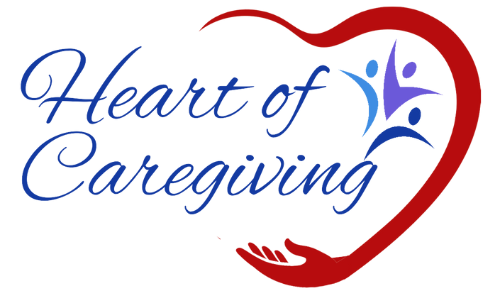Caregiving: Planning for an Uncertain Future
A colleague expressed concern about her father and the future. He was in his mid-80s and healthy. Her worries centered on how care responsibilities would be shared between her and her sisters as their dad aged. As the oldest, she felt tremendous responsibility but feared the enormous set of obligations that would be added to her already full plate. Mostly, though, she didn’t want to face the fact that her dad was getting older and would need care. I shared resources and information to help her start the conversations with her dad and siblings. She replied to the email saying she just wasn’t ready yet. Denial can feel like a safe space, but it is the most dangerous path we choose when a care opportunity looms on the horizon.
The cost of denial
Three weeks later, her dad had a stroke and didn’t recognize her or her sisters. None of the sisters knew his long-term care wishes, details about his medical history, or financial information. The sisters disagreed vehemently about how to proceed with care. With no healthcare proxy paperwork, the daughter, who arrived at the hospital first, was given authority. My colleague was locked out of decision-making and investigated obtaining guardianship. The process was nearly impossible due to local laws and practices and would have cost tens of thousands of dollars.
A different scenario
Imagine a different scenario where conversations were had before the crisis. The family had discussed their father’s wishes, and a medical power of attorney had been established, designating the sister who would take the lead and ensure their father’s intentions were followed. The family understood the father’s financial situation, how his funds would support his care and his preferred living arrangements. Conflict and disagreements are understandable when the family is under overwhelming stress, but the friction is minimized when previous conversations clarify some of the big decisions.
Here are four steps you can take today to prepare and be empowered to help your loved one navigate the future.
1. Start the Conversations
Conversationproject.org offers helpful resources to guide these often emotionally charged conversations. Discussions around aging and death are uncomfortable. It is understandable why we avoid these topics. When we have the essential conversations with intention before the crisis, we aren’t managing the heightened emotions fueled by fear. The downloadable action plan details the important conversation topics and information that can be gathered and organized to prevent chaos and conflict.
2. Assess legal documents
Lead with curiosity. Conversations will help you determine what documents are in place and what details may not have been considered.
LEGAL PLANNING CHECKLIST
1. A Will. Possibly a Trust.
2. Durable Power of Attorney.
3. Durable Power of Attorney for Health Care. It may also be called a Health Care Surrogate or Medical Power of Attorney.
4. Personal Representative or Executor of the Estate.
5. Specific instructions on leaving monetary and material possessions to people or distributing stuff while competent.
3. Assess financial information
Like aging and death, financial topics can be triggering. Some family members refuse to share details, and conversations can become contentious. If these matters are off-limits, begin small. Ask where the financial documents are kept. Does your loved one have a financial advisor? Where do they see themselves living in ten years? Share that you want to support them and their plans, and understanding their desires allows you to discuss how you can help them fulfill their dreams. Use this checklist to guide conversations and gather information.
FINANCIAL PLANNING CHECKLIST
Overview
1. Current Fixed Expenses
2. Current Fixed Annual Expenses
3. Current Monthly Deductions
4. Current Fixed Income (all sources) – Monthly/quarterly/annually
Detail
1. Automatic deposits and deductions from accounts
2. Automobile, truck, boat titles, or payoff information
3. Bank records include the name of the bank, account numbers, safety deposit boxes and keys, debit card information, and location of checkbooks
4. Birth, Marriage, Divorce, and name change certificates
5. Business records
6. Change of Address, list of those to advise
7. Contact information for the financial advisor and accountant
8. Credit card information with most current statements
9. Debts, including Lines of Credit, Overdrafts, Mortgages
10. Deeds, Property Records, Titles
11. Health Care Costs and Insurance
12. Income
13. Internet and account passwords
14. Investment accounts
15. Military records and VA benefits
16. Passport
17. Recurring Bills, including dates and method of payment
18. Savings Bonds
19. Social Security
20. Tax returns (at least one year)
21. Other
4. Consult with professionals
An Elder Law attorney specializing in your family’s specific needs can provide insights and information to save money and heartache. Unknowingly, we can make a misstep now that negatively impacts the future. When we understand the options, we make better choices, minimize conflict, and are empowered to care and advocate for our loved one.
Our financial situation is impacted when we begin caring for a family member. A financial advisor familiar with elder and aging issues can help you and your loved one make choices in your best interest now and for the future. We may help with minor expenses or make a life-altering decision to stop working and provide full-time care. The long-term effects can be devastating.
Get Started
Get the Plan for an Uncertain Future Action Plan at HeartofCaregiving.com for more on planning and preparing for the unknown. The financial decisions made or not made today will impact you and your loved one’s future. You have options now that will narrow as time passes. Learn from professionals, make informed decisions, and know you have done everything possible to prepare for what’s coming. Don’t delay. Take care of legal and financial matters today!
For more solutions for the common mistakes caregivers make, check out 21 Mistakes Caregivers Make & How to Avoid Them: Solutions and Strategies to Reduce Stress and Increase Happiness available on Amazon!
Advice offered is for general information only; please contact your healthcare team, legal or financial advisors to guide your particular situation.

